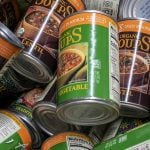Federal, state and local subsidies to U.S. farms continue to stymie a meaningful global trade pact and account for well over half of total U.S. farmgate revenues, according to the latest report from a well-known Ottawa trade consultancy.
The “labyrinth” of ag programs, worth US$180.8 billion in 2009 according to a “conservatively estimated” number from Grey, Clark, Shih and Associates, would make up over 62 per cent of last year’s total U.S. farm gate revenues of US$290 billion.
The consulting firm, in its fourth report on U.S. farm subsidy programs for the Dairy Farmers of Canada, focused on changes resulting from Washington’s 2008 Farm Bill.
Read Also

China seeks improved ties with Canada amid rising trade tensions
China called on Friday for steps to improve bilateral ties with Canada, saying there were no deep-seated conflicts of interest, following a spike in trade tensions with many of Beijing’s Western trade partners this year.
“The U.S. continues to provide massive — sometimes underreported to the World Trade Organization — support at the federal, state and local government level to U.S. agriculture,” company president Peter Clark said in a release Wednesday.
“U.S. dairy producers are among the principal beneficiaries of this support through a complex web of direct support and indirect programs and measures.”
The supports to dairy farms include infrastructure such as irrigation, services, general program benefits such as export credits, nutrition, food aid and loan and guarantee loan programs, and the “ever-expanding biomass energy incentive,” the company said.
“In addition, there are very substantial pass-through benefits from feed grain production to livestock that benefit dairy cattle and dairy production.”
Dairy’s roughly 10.7 per cent share of U.S. ag sales translates to benefits of about US$19.3 billion to U.S. dairy farmers, the company said.
“We estimate that the total direct and indirect benefit to U.S. dairy production through U.S. federal, state and local programs in fiscal year 2009 was US$12 per hundredweight (cwt) of milk produced, or C$31.11 per hectolitre,” Clark said.
That’s “significantly higher” than the estimated 2003 level of C$25.90/hl as per the 2002 U.S. Farm Bill.
“This generous support enables U.S. producers to sell below their fully absorbed cost of production by insulating them from the need to earn a profit from the market,” the company wrote. “The support also permits insulation from international price pressures.”
“Not disciplined”
But the study covers all agricultural support, not just dairy subsidies, the company said. Overall, Clark said, the U.S. Department of Agriculture, not unlike the European Union, pays support to U.S. agriculture that’s both “production- and trade-distorting.
“Rampant, misclassified and unreported domestic support is the root cause of the impasse in the Doha round (of WTO negotiations) and the overwhelming reason that meaningful negotiations will not be re-engaged for years,” Clark said.
And unless subsidies are disciplined and reduced, “everything is certainly not on the table” in negotiations toward the Trans-Pacific Partnership (TPP) and the Canada-E.U. Comprehensive Economic and Trade Agreement (CETA), he said.
The 2008 U.S. Farm Bill was “not disciplined by refinement of the WTO rules,” he said. “Nor will these undecided initiatives influence (Common Agricultural Policy) reform in Europe.
“While ‘decoupled’ support payments were supposed to make the world fairer, they made it worse and we will see much more of what is claimed to be decoupled or green.”
















